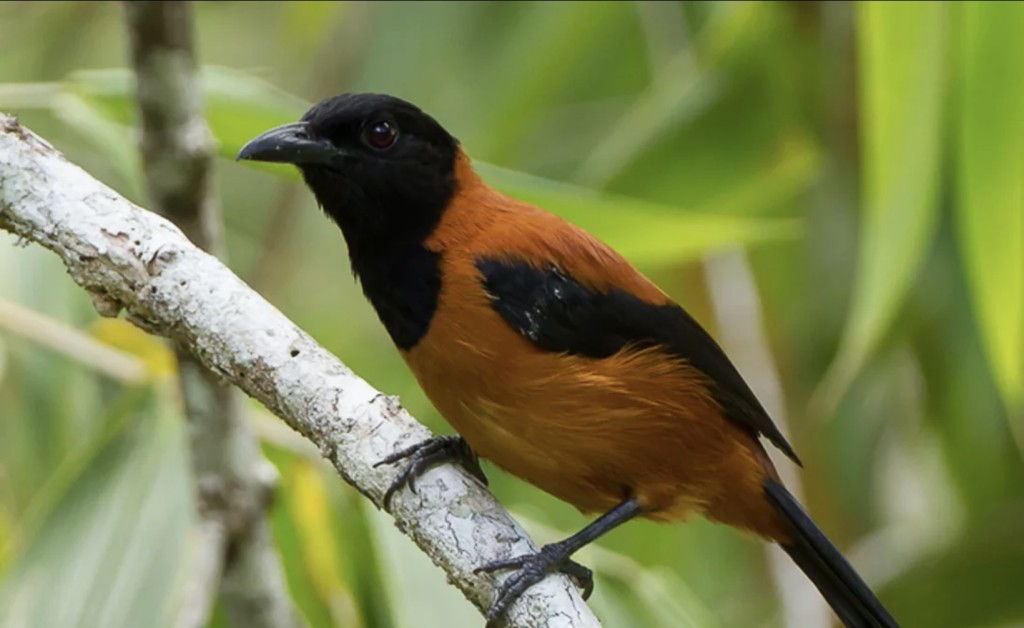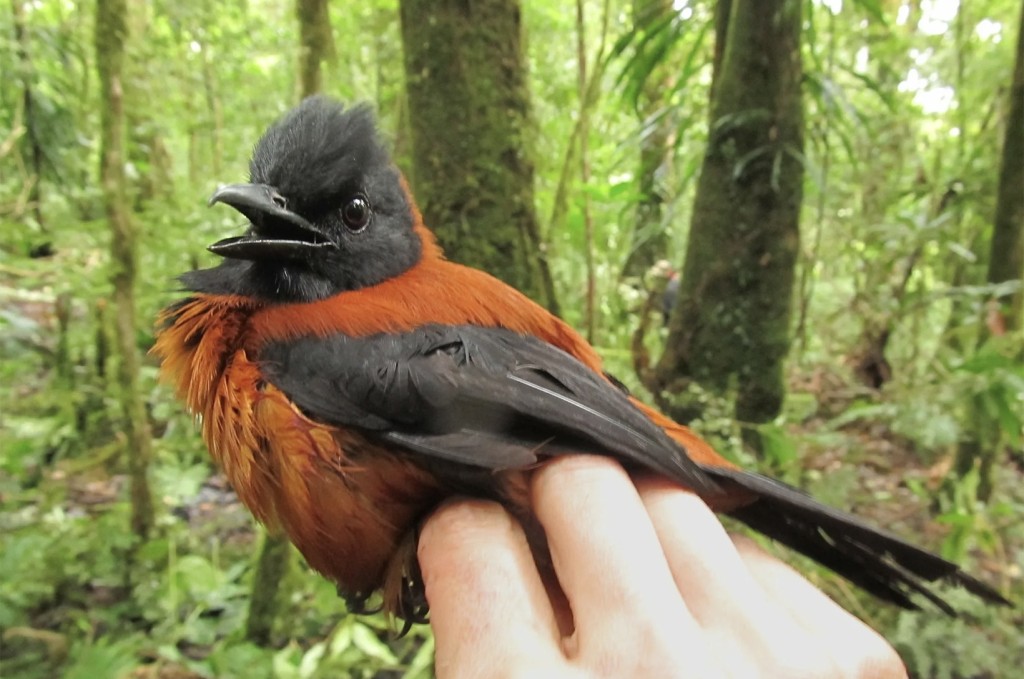November 9, 2023
The most venomous bird in the world
And also the first, whose "toxicity" was officially confirmed by scientists. Of course, it doesn't bite like a snake or a scorpion, but their venom is similar in composition. This wonderful creature is called a thrush flycatcher or a pitochu.



Thrush flycatchers are found in New Guinea and Indonesia. They prefer to live on the edges of mountain forests at an altitude of up to 2000 m, but they may well build a nest in someone's garden. In total, there are 8 species of thrush flycatchers, of which only 3 are poisonous. The most toxic is the two–colored flycatcher. These are medium-sized birds about the size of a thrush or a jackdaw, their plumage is not too bright for a tropical bird: it combines black and rust-brown colors. Flycatchers feed on insects, invertebrates and small fruits. Actually, their diet is the secret of their toxicity. They, like tree-climbing frogs, eat Choresine pulchra beetles and accumulate their venom in the skin, feathers and internal organs. If you transfer the flycatcher to a "beetle-free" diet, then it eventually becomes absolutely harmless.
The poison of thrush flycatchers refers to batrachotoxins. It causes paralysis of the respiratory and cardiac muscles, and the victim quickly dies from cardiac arrest. More precisely, not the victim, but the aggressor. The flycatchers themselves do not attack anyone, and you can only get poisoned if you catch or eat a bird. This poison is 100 times more toxic than strychnine. The skin of one bird contains 15-20 mg of poison, and about 2-3 mg more in the feathers. This amount is enough to poison 800 mice! A small animal like a dog or rabbit dies almost instantly. In order to kill a person, poison is not enough, but contact with a bird can cause a severe allergic reaction.

The story associated with the discovery of the toxic properties of pitochu sounds funny. In 1989, ornithologist Jack Dumbacher, freeing a bird from a spider's web, accidentally scratched his finger and couldn't think of anything better than putting it in his mouth. He immediately felt that his tongue and lips were numb. Fortunately, the scientist did not suffer much, but thanks to his negligence, the poisonous properties of the pitochu became known to the scientific community. In general, licking your fingers is a bad habit, but, as it turned out, it can lead to scientific discoveries! The intrepid ornithologist decided to chew the feather of an unusual bird for scientific purposes to make sure of his assumptions, and also took some feathers to colleagues in Chicago.
The locals are well aware of the toxicity of flycatchers, but they have learned to cook them so that the meat becomes edible. However, it still tastes bitter, so this dish is for gourmets or absolutely for a rainy day. So, in general, flycatchers are one of the most common birds in the forests of New Guinea and they are not threatened with extinction, which we are very happy about!
Read more
April 12, 2024
April 5, 2024